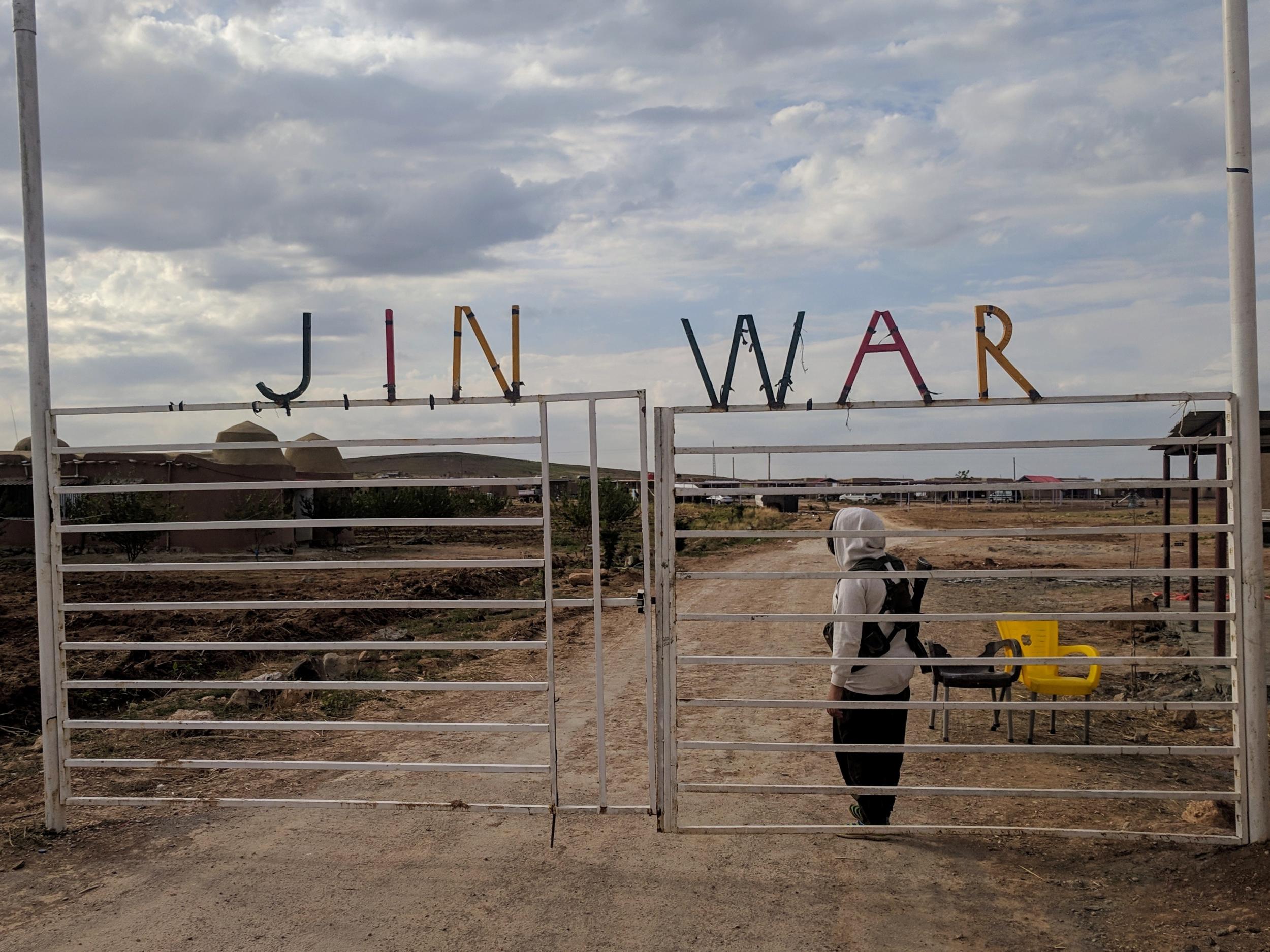Inside the women-only village engulfed by Turkey’s war in Syria
When I visited Jinwar a year ago, families were beginning to move in. Thirty simple homes had been built and crops had recently been planted in the surrounding farmland. But yesterday, its residents were forced to flee

The village of Jinwar, in the plains of northeast Syria, was supposed to be a sanctuary from men and their wars.
It was built by women who had just emerged from years of living under the constant threat of Isis, not far from where the borders of the caliphate once reached.
When I visited a year ago, families were beginning to move in. Thirty simple homes had been built and there were plans for even more. Crops had recently been planted in the surrounding farmland. Flowerbeds were in bloom.
Yesterday, its residents were forced to abandon their homes as Turkey’s invasion of northern Syria reached their gates. Shelling and the threat of jihadists attacking meant it was too dangerous to stay.
The abrupt end of Jinwar is part of a larger story of displacement from the towns and villages along the Turkey-Syria border. More than 200,000 have fled, and it isn’t clear whether they will ever feel safe enough to go home again.
But there is also symbolism in this particular village’s story. Jinwar was an attempt to prove something. The people that founded it believed that even here, in northern Syria, women could flourish if they were able to escape the family-orientated roles that a patriarchal society has assigned to them. The Kurdish women who joined the fight against Isis captured the attention of the world – Jinwar aimed to build on that and promote the idea of women’s liberation beyond Isis.
That they were forced to abandon it only proved they were right: a symbol of opposition to war has been engulfed by one.
Projects like Jinwar have flourished in the northeast region of Syria, known as Rojava, in the years since the departure of the Syrian government, and after the defeat of Isis. For all the faults of the autonomous administration, run by the Syrian Democratic Forces, women have made striking gains over the last few years.
But as Turkey looks set to push further into Syria to destroy the SDF, and the Syrian government has begun its slow return, those gains are under threat.
“Without women there is no freedom,” Zainab Gavary, a 28-year-old resident of Jinwar, told me during my visit. “Until women educate and empower themselves, there won’t be freedom.”
Yours,
Richard Hall
Middle East correspondent
Join our commenting forum
Join thought-provoking conversations, follow other Independent readers and see their replies
Comments